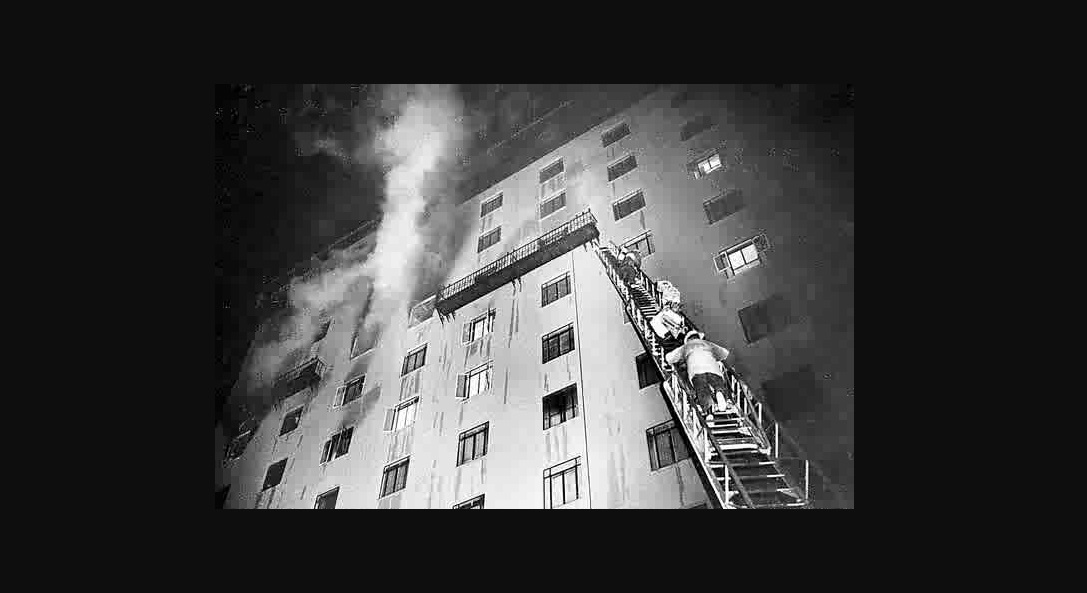PHOENIX (CN) — A federal judge reversed course in a decade-old legal challenge to the conviction of a man accused of starting a deadly fire, denying his request to expunge his murder conviction.
The man sought to expunge the 2013 conviction so that he can seek damages based on the years he spent incarcerated. The judge issued the order 11 days after the Ninth Circuit declined to intervene, giving the defendants Pima County and the city of Tucson exactly what they had asked the Ninth Circuit for weeks prior.
Louis Taylor spent 42 years in a state prison after being convicted on 28 counts of murder for those who died in the 1970 Pioneer Hotel Fire in Tucson, Arizona. Despite a lack of evidence that the fire was even arson, Taylor, then 16 years old and Black, was convicted by an all-white jury in 1972 because he was seen in the hotel at the time and didn’t have a convincing reason for being there. Witnesses at trial said they saw Taylor carrying victims to safety.
Taylor sued Pima County and the city of Tucson for racial discrimination and wrongful imprisonment in 2015, two years after he was released from prison on a no-contest plea which set aside his 1972 conviction and replaced it with a new one carrying no prison time. The Ninth Circuit has already ruled that the recent conviction, not the old one, is now the legal reason for his incarceration.
In 2021, Taylor amended his 2015 complaint to request that the 2013 conviction be expunged so that he can seek damages for the 42 years spent in prison.
Legal precedent set by Heck v. Humphrey bars petitioners from seeking damages from time spent incarcerated without showing that their conviction has been overturned. Taylor argued the prosecution leveraged his incarceration to obtain a no-contest plea to charges it knew couldn’t be proven beyond a reasonable doubt at retrial, barring him seeking incarceration-based damages.
U.S. District Judge Rosemary Marquez agreed with Taylor, ruling that she would expunge the conviction if a jury finds that his arrest was unconstitutional. That civil trial is now set to begin in July.
The defendants challenged her ruling, arguing that while Shipp v. Todd establishes that a federal judge can expunge criminal records like arrests and indictments, it doesn’t grant the power to expunge a state conviction. The defendants sought a mandamus order from the Ninth Circuit in March but it refused to interfere, deciding the issue would be better addressed on appeal.
U.S. Circuit Judge Patrick Bumatay, a Donald Trump appointee, dissented and wrote the expungement of a state conviction is clearly out of a federal judge’s power. His dissent, coupled with a motion to reconsider filed by the defendants the next day, convinced Marquez to reverse her decision and grant summary judgment on the expungement claim in favor of the defendants.
In her Friday order, she adopted the defendants’ argument that no state court conviction has ever been expunged in a civil rights case.
“Plaintiff cannot seek in this action a declaratory judgment vacating his 2013 convictions,” Marquez wrote. “And allowing plaintiff to instead seek expungement of the records of the 2013 convictions would be futile, because the Ninth Circuit has made clear that a person who 'wishes to expunge the records of his conviction' must first obtain a judgment, via recognized post-conviction remedies, that the conviction was unlawful.”
When she first ruled that she could expunge Taylor’s conviction, Marquez found that Taylor had no other option to pursue in place of expungement. Now that he is seeking post-conviction relief in state court, she found that analysis “no longer valid.”
“He can no longer plausibly argue that he lacks an adequate state-law remedy for challenging his 2013 convictions,” Marquez wrote.
Even if she were to expunge the conviction, Marquez found Taylor would still be barred from seeking incarceration-based damages because expungement wouldn’t change the legality of his conviction.
The rest of Taylor’s claims remain in play and will be hashed out at trial beginning July 8.
The parties' attorneys did not respond to requests for comment by press time.
Subscribe to Closing Arguments
Sign up for new weekly newsletter Closing Arguments to get the latest about ongoing trials, major litigation and hot cases and rulings in courthouses around the U.S. and the world.









